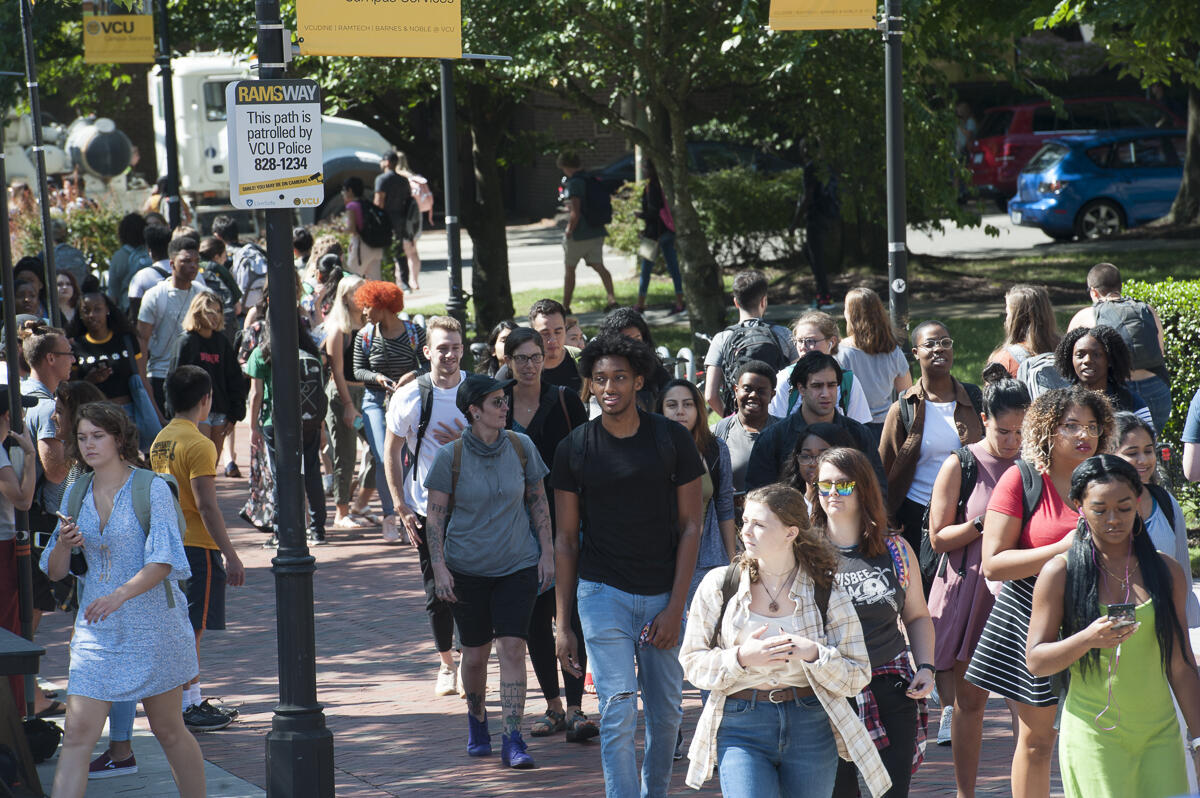
Feb. 18, 2022
VCU to help develop a racial-healing toolkit for colleges and universities
Share this story
Virginia Commonwealth University is one of 19 colleges and universities selected by the American Association of Colleges and Universities to serve as thought partners to develop a Truth, Racial Healing & Transformation Campus Climate Assessment Toolkit. Core teams from each institution will provide feedback on the toolkit’s relevance, content and structure.
The goal is to promote a deeper understanding of campus environments – including the lived experiences of faculty, staff, students and communities and historical racial narratives – and provide a road map for healing and nurturing diversity, equity and inclusion.
“The ability of an institution to address systemic inequities effectively depends on a clear-eyed, ongoing assessment of the many factors that influence its unique campus climate,” said Lynn Pasquerella, president of the American Association of Colleges and Universities. “We are thrilled to partner with these 19 colleges and universities on the development of a new and much-needed resource to support such assessments.”
VCU’s core team for the Truth, Racial Healing & Transformation Campus Climate Assessment Toolkit includes:
- Camille Burnett, Ph.D., associate vice president of education and health equity and executive associate director of the Institute for Inclusion, Inquiry and Innovation.
- Carlos Smith, D.D.S., an associate professor of dental public health and policy in the School of Dentistry and director of diversity, equity and inclusion. Smith is an iCubed scholar in the Oral Health core.
- Sarah Jane Brubaker, Ph.D., a professor of criminal justice and public policy and administration programs in the L. Douglas Wilder School of Government and Public Affairs. Brubaker is an iCubed scholar in the Disrupting Criminalization in Education core.
- Nakeina Douglas-Glenn, Ph.D., an associate professor in the L. Douglas Wilder School of Government and Public Affairs, director of the Grace Harris Leadership Institute and interim director of the Research Institute for Social Equity.
- Tomika Ferguson, Ph.D., assistant dean for student affairs and inclusive excellence and an assistant professor in the Department of Educational Leadership in the School of Education.
- Dina Garcia, Ph.D., an assistant professor in the Department of Health Behavior and Policy in the School of Medicine. Garcia is an iCubed scholar in the Oral Health core.
- Rachel Gomez, Ph.D., an assistant professor in Foundations of Education in the School of Education. Gomez is an iCubed scholar in the Urban Education and Family core.
VCU’s team will participate in structured methodologies (including but not limited to structured interviews, feedback sessions, focus groups, project meetings, document collection and online surveys) throughout the development and review processes; participate in virtual or in-person campus visits; and provide feedback on the toolkit’s assessment practices.
“We worked diligently to ensure a core team with expertise and unfettered passion in advancing the continuation of a VCU where everyone feels that they belong, are valued here, are seen here and are wanted here,” said Smith, one of two co-leads for the project. “Our team includes faculty and staff across genres, disciplines and scholarly interests as well as representational diversity along demographic lines.”
The TRHT–Focused Campus Climate Assessment Toolkit will complement existing campus climate surveys. The toolkit differs from other diversity, equity and inclusion frameworks by highlighting the concept of racial healing. The W.K. Kellogg Foundation, which developed the framework of the toolkit, describes racial healing as “[recognizing] the need to acknowledge and tell the truth about past wrongs created by individual and systemic racism and address the present consequences.” The framework is especially poignant for institutions of higher education, many of which may have challenging historic racial narratives, according to Smith.
“We continue to endure the horrific effects of such strong and looming societal racial divides. We must acknowledge the wrongs of the past and address the consequences of those wrongs, in a deep and meaningful way, in an effort to move away from human value hierarchy into a shared rich and wholesome human experience,” Smith said.
VCU’s involvement in the toolkit’s development is a significant step toward identifying actionable strategies for racial healing, Burnett said.
“The essence of transformation starts with the acknowledgement of truth followed by just action,” said Burnett, team co-lead for the project. “The toolkit supports and guides institutions toward this sort of transformation as the foundation for institutional and community healing. It is both an opportunity and a solution.”
VCU’s team will serve as thought partners on the toolkit until June 2023.
Subscribe to VCU News
Subscribe to VCU News at newsletter.vcu.edu and receive a selection of stories, videos, photos, news clips and event listings in your inbox.







